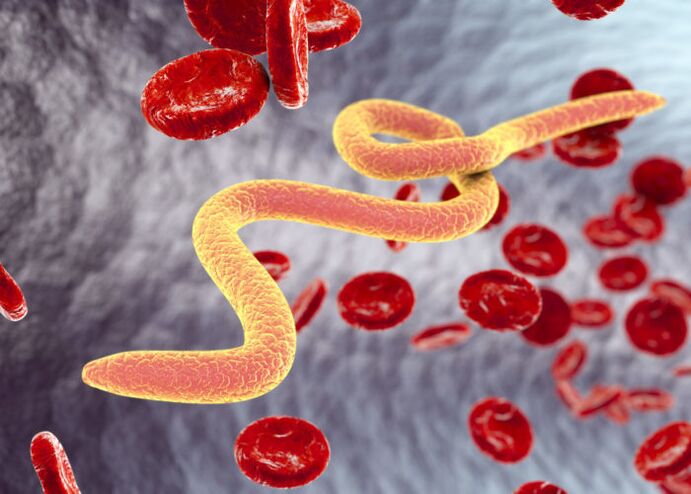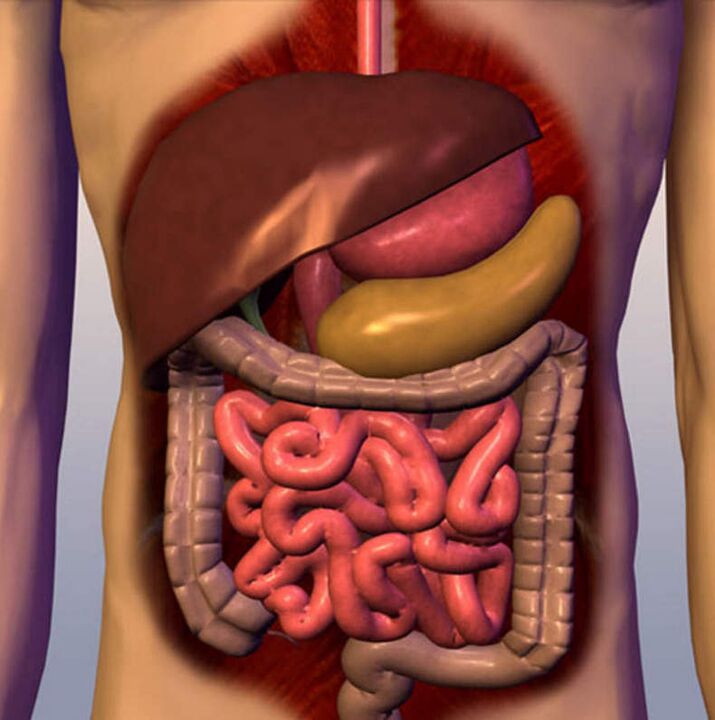Parasites are unusually persistent. For example, they can wait for their "master" for years when they are in the egg or larval stage. Getting into the body, that is, into an environment favorable for life, parasites enter the active phase of existence, causing harm to human health.

People all over the world suffer from parasitic infections. Experts believe that about 90% of the population of highly developed countries is infected with one or another human parasite. It is necessary to know the ways of infection with parasites and the symptoms of their presence in the body in order to avoid possible health complications.
Human parasite symptoms
The development of tourism around the world is a prerequisite for the unhindered migration of a variety of parasites. In addition, it is worth noting that during evolution these organisms have developed high resistance to environmental conditions and survival.
Where can you catch parasites?
Parasites are waiting for their new "host" on the most diverse surfaces, in sinks, sinks, toilets, natural reservoirs.

The simplest parasites - lamblia are widespread in preschool institutions: they can infect a child with an elementary diaper change and / or with violations of the rules of hygiene.
There is a high risk of becoming infected with helminths (worms) at aid stations.
The facility level does not guarantee 100% infection protection. Parasites get into the human body along with raw fish (sushi), undercooked meat (pork), with underwashed vegetables, fruits and herbs.
Cooking food in microwave ovens can spread a parasitic infection: Food is heated unevenly in a microwave oven. As a last resort, this stove should be used for heating but not for cooking.
Tap water is a favorable environment for all kinds of organisms. And chlorination does not destroy Giardia and Cryptosporidium.
Pets are active propagators of helminths (especially cats). If you don't have a pet, you can get infected across the ground in parks, sandboxes, and playgrounds from walking dogs there.

Parasites find us easily, but we find them with difficulty.
Parasites cannot always be detected using simple (faecal analysis, egg cell and parasite test) or modern diagnostic methods. An amoebic infection, for example, is only found in 1 in 10 cases of stool examination.
This means that a negative test result for the presence of parasites does not guarantee their absence.
Parasites masquerade as other diseases
- Giardiasis can successfully hide behind the apparent chronic fatigue syndrome and candidiasis;
- Ulcerative colitis will turn out to be a case of amebiasis;
- migraines, depression are manifested in toxoplasmosis;
- Roundworms act as a pathogenic factor in allergies and asthma, atopic dermatitis, eczema in the younger age group;
- There is a hypothesis of a link between type 1 diabetes mellitus and helminths (tapeworm);
- There has been precedent for healing hyperactivity and attention deficit disorder after pinworm removal;
- Convulsions are possible when infected with a pork tapeworm;
- Blastocytosis is a trigger for leaky gut, which leads to autoimmune diseases and food allergies.
Signs of a parasitic infection
- diseases of an autoimmune nature;
- Anemia;
- Insomnia, teeth grinding. Parasites are activated at night and during the full moon phase. If insomnia makes itself felt during the full moon - think about it;
- Damage to skin and mucous membranes: rash, acne, nail fungus, eczema, irritation / itching of the skin and mucous membranes of the nose, ears, eyes, around the anus, blisters on the lower lip and oral mucosa;
- Chewing finger nails;
- Emotional instability: irritability, anxiety, depression, mood swings. Parasites secrete neurotoxins.
- chronic fatigue;
- Weight problems: loss of appetite or, conversely, excessive appetite, craving for sweets, obesity, underweight in children.
- Episodic increase in body temperature;
- dark circles under the eyes;
- food allergy. The most commonly recorded latent allergy to dairy products;
- bedwetting at night;
- Diseases of the urogenital system: impotence, erectile dysfunction, prostate diseases, PMS and menstrual cycle, cysts and fibroids, fluid retention;
- change in liver and/or spleen size;
- loss of muscle mass, muscle weakness, spasms and numbness of the upper and lower extremities;
- Infections of a chronic and recurrent nature: viruses, bacteria and fungi (recurrent candidiasis);
- sweating at night ;
- Unpleasant "aroma" of the body and breath.

The most noticeable symptoms of the gastrointestinal tract:
- excess saliva,
- itching around the anus,
- gallbladder problems,
- heartburn, hemorrhoids,
- gas formation,
- Constipation,
- Diarrhea,
- to throw up,
- Intolerance to gluten, casein and lactose.
Characterized by alternating constipation and diarrhea.
Alarming symptoms of a parasitic infection are:
- bacterial overgrowth cider
- irritable bowel syndrome and irritable bowel disease.
As you can see, determining the presence of parasites in the body is not so simple. However, certain alarms and conditions should alert you.
P. S. And remember, just by changing the way you consume, together we change the world!



















